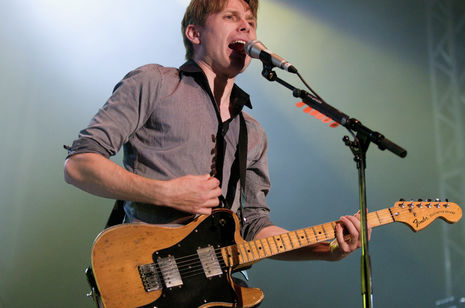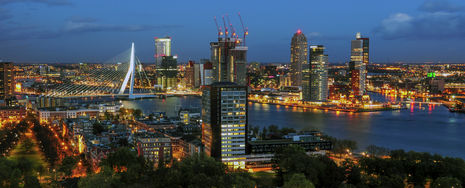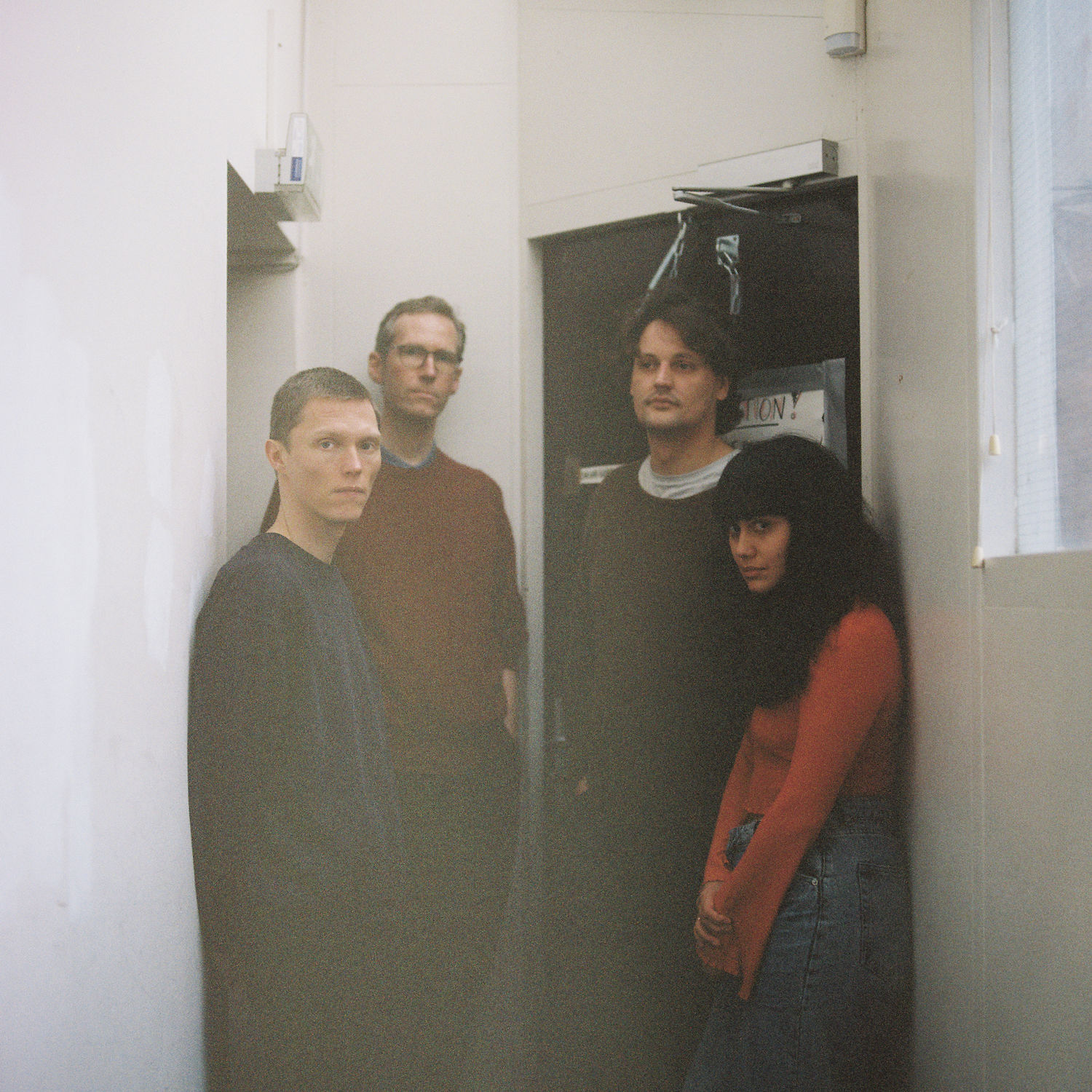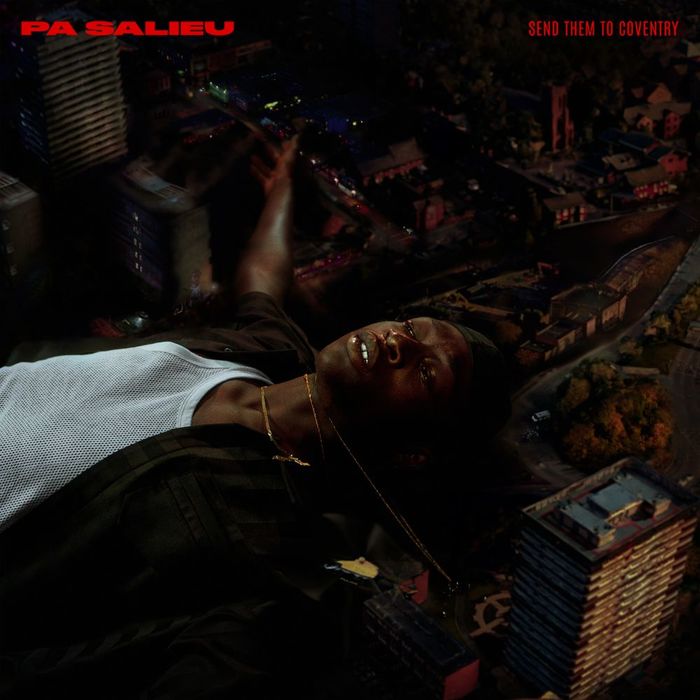Rotterdam is well-known for the plethora of modernist architecture peppered across the city and for being the largest seaport in Europe. What is less known about the Dutch city is its fertile and protean music scene. Rotterdam is now home to many talented bands, including the post-punk outfit Rats on Rafts, as well as AC Berkheimer. One of the city’s standout groups is Lewsberg: a quartet consisting of Arie van Vliet, Michiel Klein, Dico Kruijsse, and Shalita Dietrich. I sat down virtually with the singer, Arie, and the guitarist, Michiel, to discuss the band’s inception and influences, as well as what being a musician is like in the age of Covid-19.
The origin of the band’s name lies with the obscure Dutch writer, Robert Loesberg, whose best-known book, Enige Defecten, is a work that the singer, van Vliet, is familiar with. Whether van Vliet’s literary encounters have had any influence on his songwriting is unclear, but it is unquestionably the case that Lewsberg’s lyrics are descriptively dense. Whether recounting the incrementally excessive midday drinking routines of an individual who ‘decides to have another glass or two’ in “At Lunch”, or in the story of a man who ‘loved to talk, but hated conversation’ in “Non-Fiction Writer”, the profusion of piquant details in the imagery of Lewsberg’s songs does not easily translate into clarity. Van Vliet’s lyrics are indubitably cryptic, and it is for the listener to discern exactly what is going on in each track.
“Lewsberg’s songs are often distinctly melancholic”
The band have often been compared to The Velvet Underground. When asked about the importance of the 1960s outfit for the band, Michiel told me that, while many artists are inspired by Bob Dylan or The Beatles, Lewsberg sit comfortably in the “Velvet Underground camp”. However, like all creative endeavours, Lewsberg have a clear intention to fashion something new. While the sound of “At Lunch” is somewhat reminiscent of “Femme Fatale”, and “From Never to Once” possesses some of the heavy guitar sounds of “I’m Waiting for the Man”, inspiration is certainly not imitation. Van Vliet’s vocals, which often take a spoken form in a thick Rotterdam accent, help to produce a truly unique sound. Lewsberg’s songs are often distinctly melancholic with gradual, elongated endings, as is the case in “Carried Away” and “Non-Fiction Writer”.
Lewsberg released their latest record, In This House, in March 2020, almost two years on from their eponymous debut album. Michiel informed me that the group’s second record was produced with more intention, saying, “we were more sure of our identity as a group”. That identity is clearly something Lewsberg think is unique to the band, and not necessarily the product of the broader Rotterdam music milieu. Arie and Michiel reveal to me that they are well-informed about the developments in Dutch music, in that “you can’t avoid meeting each other and listening to each other”. However, a loose connection should not be confused with any formal or direct kinship. “It’s not like we are part of a scene. We keep to ourselves”, Michiel tells me.

Quite unconventionally for a 21st Century band, Lewsberg cannot be found on social media. Arie states that he has no clear objections towards using social media in a personal capacity. What is more objectionable for him, however, is using such platforms as a space to craft and channel the band’s identity. Instead, that process of identity projection should be more organic, whether through releasing records or playing live shows. Despite Lewsberg’s insouciance towards social media, the group have not struggled to garner a support base across Europe. The band has also received endorsement from such luminaries as Alex Kapranos, the frontman of Franz Ferdinand.
“For Lewsberg, the purpose of making music is not to proselytise an ideology or a worldview, but rather to tell a story”
Politics is clearly something important to both band members. Arie and Michel are hesitant, however, to call Lewsberg a “political band”. Arie candidly informs me that “I think it is more important to think about those things (politics) when you go to the supermarket rather than when you play music”. For Lewsberg, the purpose of making music is not to proselytise an ideology or a worldview, but rather to tell a story and produce something that is creative.
Moving on from a more general question about the relationship between the band’s music and their politics, I proceeded to probe them about more specific issues. On the importance of carbon offsetting as touring musicians, Arie suggests that the size of one’s band is proportional to the positive impact it can make in this respect. “I think you can make a big difference when you are a big band. But as a small band travelling by van through Europe, I don’t know if it makes a difference if you’re travelling by train or by car”. This note of resignation does not mean, however, that the band believes the high-flying, globe-trotting nature of international touring cannot be curbed. Commenting specifically on DJs, Michiel tells me, “that way of life seems crazy to me on so many levels”.
On the band’s attitude towards streaming services such as Spotify, Arie tells me that “I don’t agree with the model at all, but I think I don’t agree with some things in society either and yet I still have to be part of it as part of society”. Van Vliet much prefers the model adopted by websites such as Bandcamp, which involves paying artists per song. Nonetheless, he also recognises that such websites do not have the reach and the dissemination power of quasi-monopolistic apps like Spotify.

With over 10,000 recorded deaths as of December, the Netherlands, like many other European countries, has had a difficult time dealing with the coronavirus pandemic. The country entered into a national lockdown on March 15th. I asked the band about the impact of the Covid-19 pandemic on their ability to perform and create music. The band was due to tour the UK in April, with shows scheduled at the Moth Club in Hackney and the Brudenell Social Club in Leeds. But, of course, these shows were cancelled under the new restrictions. Despite this, Arie remained fairly positive in the spring. “At first, I actually quite enjoyed it”, he tells me. The experience opened up more opportunities for reading lengthy novels and taking long walks.
“Nine months on from March, Lewsberg are ready to be playing live gigs and making music again”
Lockdown also served as a convenient period of rest and respite for the band. Nine months on from March, however, Lewsberg are ready to be playing live gigs and making music again. They are due to play shows in the UK in June 2021, in cities such as Leeds, Manchester, Oxford, and Edinburgh.
Uncertainty still looms over the viability of the tour, however, and the band themselves know it. “It’s so strange, because we don’t know if it will work out this time”, Michiel says. This recognition of the precariousness of touring today is unsurprisingly common among musicians. And while some artists touring the UK, most notably Gruff Rhys, have made special efforts to schedule socially distanced concerts, those efforts may ultimately prove futile, if the location of a show moves up a stage in the government’s tier system.
Nonetheless, with their distinctive sound and increasingly prolific output, Lewsberg look likely to overcome the practical and logistical challenges that come with the present crisis. Whatever the future holds, they are a band well-worth paying close attention to in the months and years ahead.


